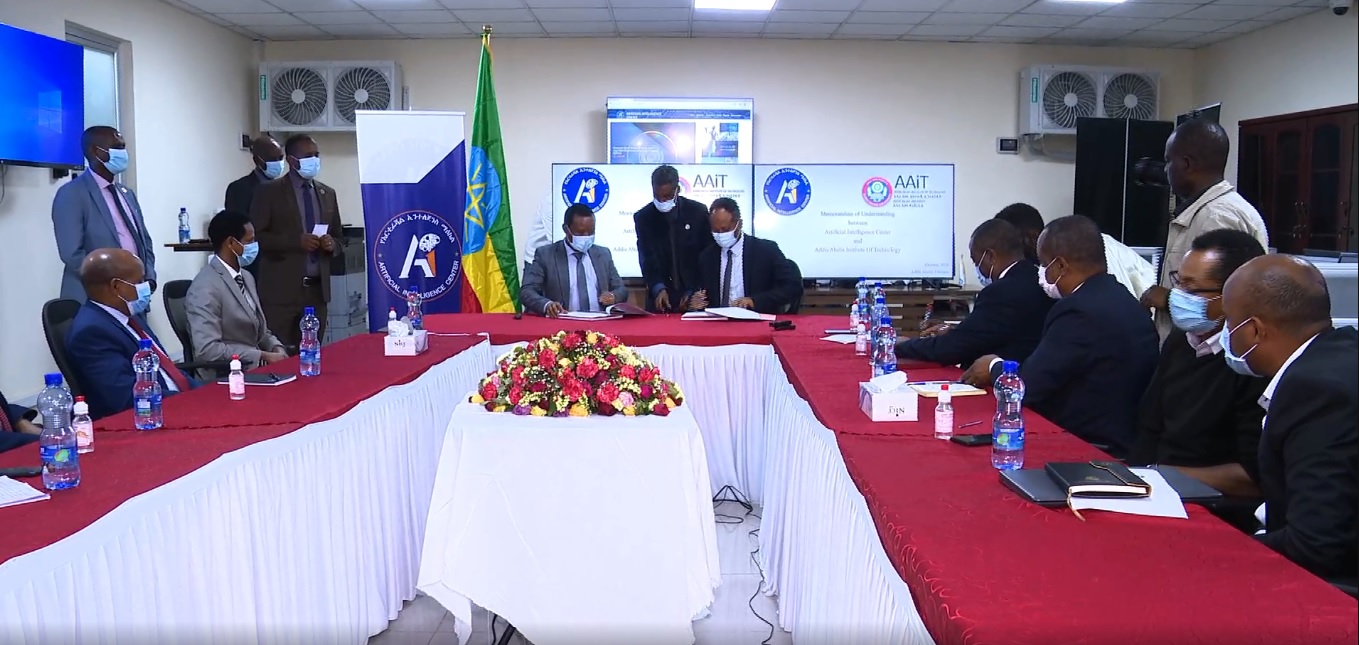Center Struggling to Adapt Artificial Intelligence - ENA English
Center Struggling to Adapt Artificial Intelligence

Addis Ababa October 9/2020 (ENA) Artificial Intelligence Center (AIC) is facing financial and human power challenges in its attempt to apply AI technology in public and private entities in the country, Deputy Director-General of the center said.
AIC Deputy Director-General Taye Girma told ENA that the center which aims to become a national center of excellence by establishing AI policy and creating conducive ecosystem for the private and public sector is facing two major challenges in general.
According to him, almost all government institutions and private entities require AI applications to deliver effective services with the support of AI technology.
Among the sectors the center is trying to address are health, transport, education, agriculture, manufacturing, metrology and aerospace, he pointed out.
Taye noted that the country has various independently dispersed startup entities in government institutions and in the private sector. However, these entities and institutions lack unified national center and collected data, he added.
“There are startups mainly in the private sector and government institutions but all of them work independently. So there has to be a national center which can bring all the successes together. And they also lack data for research, although AI needs data. I, for instance, had to wait one and half years to get data for my PhD research in health sector,” the deputy director-general elaborated.
Thus the establishment of the AI center helps to gather national data from various sectors and institutions to ease works for researchers without hassle, he stated.
According to Taye, however, the center requires financial and capacity building support.
“We have two major challenges. The first challenge that we have is financial. Research must be supported by finance. We are trying to get some research funds by developing proposals and submitting it to the international research call,” Taye pointed out.
The second challenge is lack of skilled manpower in the area of AI, he added. The center is therefore trying to provide internal training and develop a national curriculum for AI so that it can let higher institutions of learning in the country produce graduates in the area.
AI maximizes the efficiency of professionals and speeds up services, especially in countries with limited professionals with limited experiences like Ethiopia.
The deputy director-general further revealed that breast cancer detection, brain tumor detection, ECG reading interpretation, skin diseases detection and management, diabetes prediction, and AI enabled tele health system are among the seven challenges identified for now to be supported by AI.
Dr. Zelalem Chimdesa, CEO Zewditu Memorial Hospital, which has recently signed MoU to work with AIC in the health sector, said on his part that the hospital is willing to collaborate with the AIC in terms of starting AI in medical areas and also developing research and other collaborations.
The introduction of AI to the health sector in Ethiopia is broadly beneficial and is needed for diagnosis, particularly breast cancer.
The AI reduces the burden of radiologists and dermatologists that are very few in number, especially in rural areas, he pointed out.
According to Zelalem, “this is huge research that needs huge number of data and it needs big financial support. I think there is financial gap that we are observing, but with the collaboration of AIC we are trying to find supporters.”
As a country, there could be some challenges in putting AI technology forward but AI help professionals with increasingly sophisticated, tireless and effective work, the CEO added.
The Artificial Intelligence Center signed Memorandums of Understanding last week with Zewditu Memorial Hospital and four others to collaborate in health, education, finance and meteorology sectors.
The center was inaugurated in September, 2020.